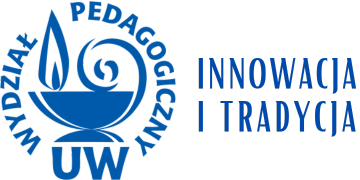Międzynarodowe Seminarium WPUW: 07.05.2019, godz. 15.30, sala 507
Serdecznie zapraszamy na spotkanie z prof. Danielem Wagnerem z Weizmann Institute of Science (Israel), które odbędzie się we wtorek 7 maja o godz. 15.30 w sali 507. Nasz gość wygłosi wykład pt. Research Into Family Origins: A Pastime and/or an Academic Activity?
Organizacja spotkania: dr Justyna Żak, Zakład Edukacji Estetycznej i Studiów nad Kulturą
Prof. Daniel Wagner
At the Weizmann Institute since 1985, recipient of the Livio Norzi Professorial Chair in Materials Science. The author of about 285 scientific papers.
Awards and Prizes: The Gutwirth Prize (Israel, 2010), the Christoffel Plantin Award in Science (Belgium, 2014), the Landau Prize in Arts and Science (Israel, 2014), the Medal of Excellence in Composites (U. of Delaware, USA, 2016), and the American Society for Composites DEStech Award (2017).
On the genealogical side, Wagner has researched his Polish roots since 1995, is a member of the Israel Genealogy Research Society (IGRA) and was a Co-Chairman of the 2004 International Conference on Jewish Genealogy held in Jerusalem. He is the author of 33 papers and 3 books about genealogy, and the editor of a multi-author booklet about scientific tools in genealogy. He is a member of the Management Committee of the International Institute for Jewish Genealogy and Paul Jacobi Center.
Abstract:
The field of genealogy is in the midst of a significant transition, which is primarily rooted inrecent major scientific advances. What used to be mainly an activity similar to stamp collecting, practiced mainly by the elderly, is fast becoming a field of ample information and knowledge. In the last 40 years there has been an enormous increase in the number of peer-reviewed articles published in the field of genealogy. It is particularly interesting that the number of publications in the exact sciences has largely outgrown those in the fields more traditionally associated with genealogy. Such a gap is rooted in recent major scientific advances. Interestingly, in the last 10 years or so, publications in the more traditional genealogy-related fields have also surged significantly. The past and present training of genealogists does by no means reflect such science-related developments. However, the impact of the fast growing number of intricate scientific facets in this field makes it indispensable that genealogists are offered a basic set of introductory tools in the relevant aspects of the hard sciences. I believe that a number of scientific tools belonging to the “hard“ sciences should be part of a future curriculum in the teaching of genealogy. Research in modern genealogy will not progress and develop without them. This presentation illustrates this by means of selected examples.

